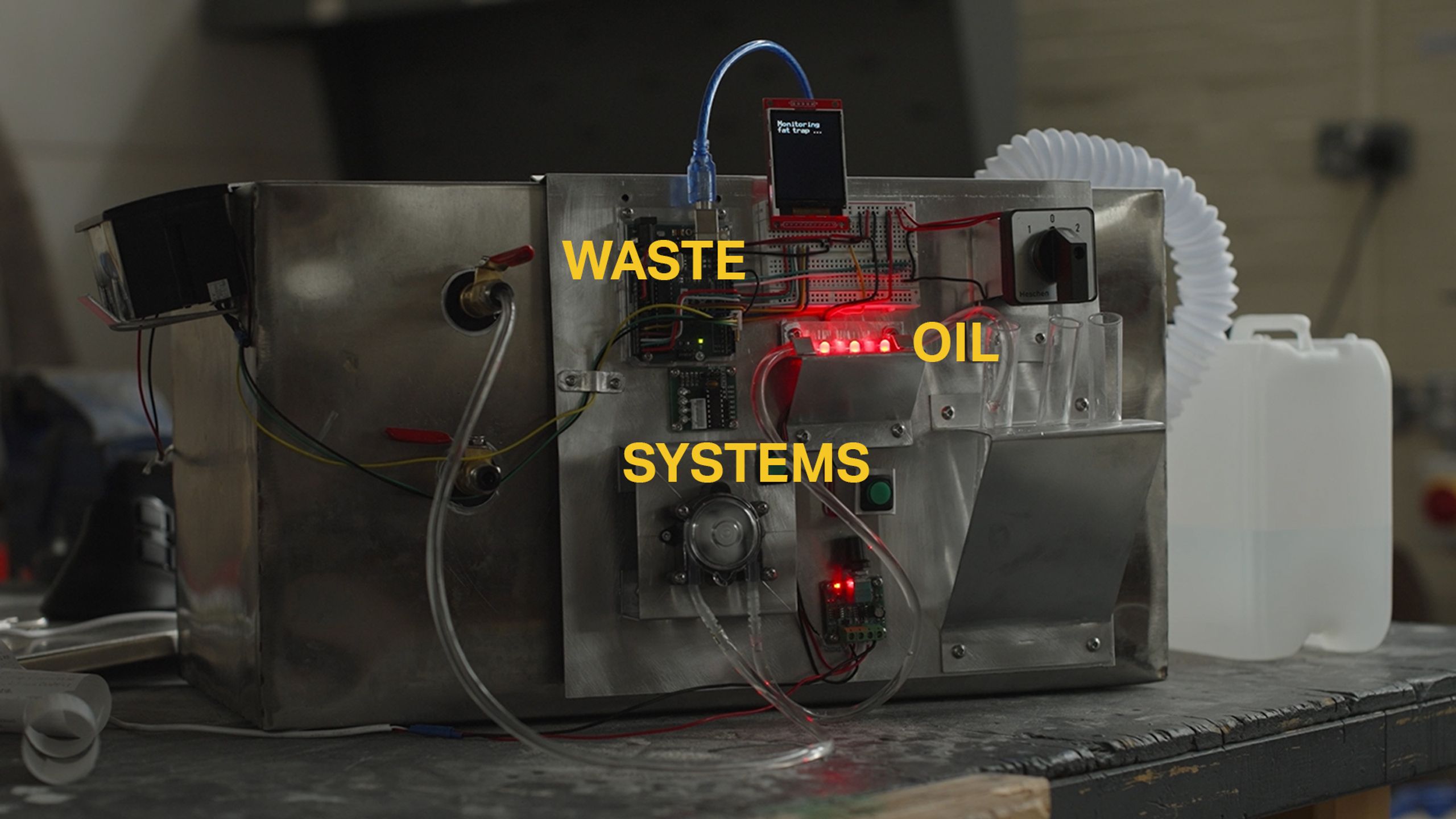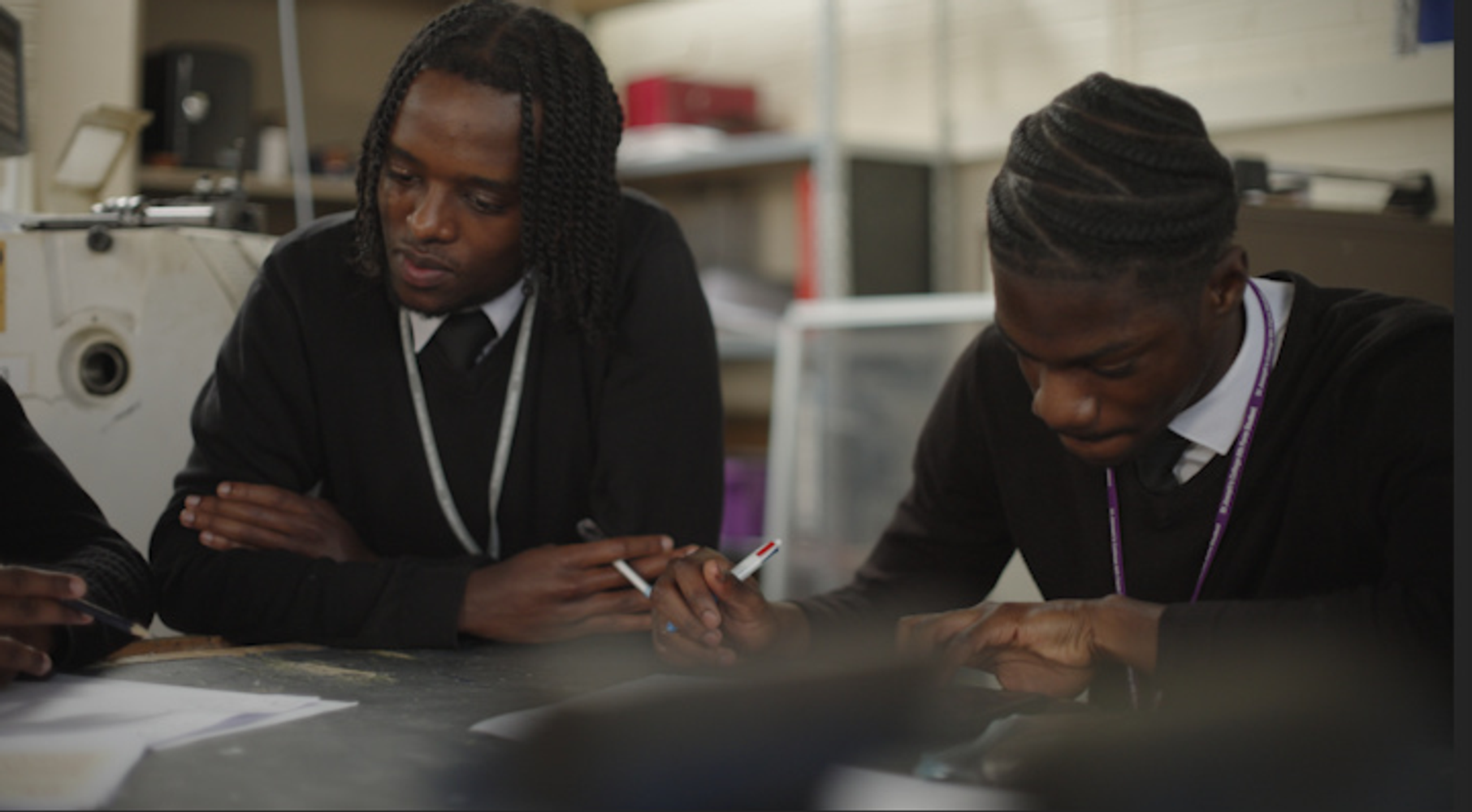A key milestone for Fatconomy was collaborating with younger people from a state school to create an educational narrative around waste oil systems. The goal was to use a design and engineering object, ‘the fat trap’, to reveal hidden aspects of waste oil systems. This approach aimed to stimulate debate, questioning, and curiosity, thereby opening up discussions on future studies, biomaterial craft, and clean energy initiatives within the circular economy.
This development has led to a more democratic design process in which we invited students to learn from a modified fat trap and its current, and possible future functions within their local area. Illustrating how ‘hacking’ a fat trap can reveal the value of the waste oil present in their homes, schools and local takeaways. The ‘FAT TRAP A.I.’ Prototype became the centrepiece of the workshop with St. Joseph’s College, prompting us to structure the workshop around this design object. This design prototype evolved into a tool for pedagogy.
From this early prototype stage, we retro-fitted the fat trap device with open software tools, such as Chat GPT, to allow feedback on basic waste oil statistics. Data ranged from quantity needed to decarbonize a petroleum vehicle currently on the road, to the amount of waste glycerol that can be produced with the current amount of waste oil collected in the fat trap. The aim was to open more pathways for the students to study, investigate and interrogate the waste oil system.
We developed a methodology and format in collaboration with Kofi Damptey, head of engineering for Year 11 and sixth form at St. Joseph’s College, and Jean Ampah, head of business enterprise and engineering at St. Joseph’s College. Additionally, we partnered with industry experts Rachael Vincent, head of marketing at Olleco, and Adam Baisley, the CCO of Olleco, to gain external advice on waste oil recycling and to understand the main challenges Olleco face as a business.
Three acts were devised to breakdown the waste oil system into actionable research for the students, adopting a functional and clear method for each act was evidently needed to breakdown a waste system structure for the students to feel they can easily participate without being overwhelmed by complexities and barriers of uncertainty.








